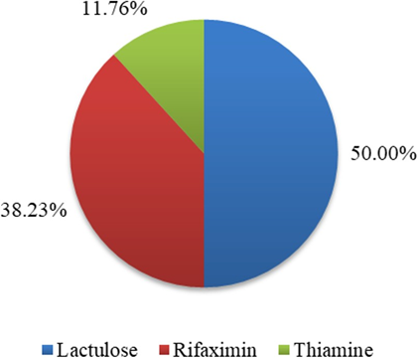Abstract
Alcohol induced cirrhosis prevalence has increased worldwide of late and has added markedly to the global burden of diseases. However, research involving quality of life as treatment outcome for alcoholic liver disease is limited. The primary objective of the study was to evaluate the health related quality of life and factors affecting it in alcoholic liver disease patients. Secondary objective was to analyze mental health status and prescription pattern in alcoholic liver disease patients. Patients, eligible to participate, were briefed regarding the purpose of the study and informed consent was obtained. Self-designed case report form and validated questionnaires were used to record information on physical, mental and emotional functioning of the patient. The study included 51 patients. It was found that majority had low quality of life scores with role limitation due to physical health (5.39 ± 16.9) domain being the most affected. It was also found that the symptom fatigue caused the most hindrance to patient’s daily activities (1.31 ± 1.20). Most of the patients reported having mild depression (50.98%). Prescription analysis showed that diuretics (74.50%) and drugs for hepatic encephalopathy were the most commonly used drugs. The present study found that alcoholic liver disease considerably impaired health related quality of life and identified the contributing factors as presence of complication, age, severity of disease and symptoms like fatigue and abdominal pain. Hence, evaluating factors affecting quality of life and prescription patterns help identify targets for novel treatment strategies.
Full text article
Authors

This work is licensed under a Creative Commons Attribution-NonCommercial-NoDerivatives 4.0 International License.

